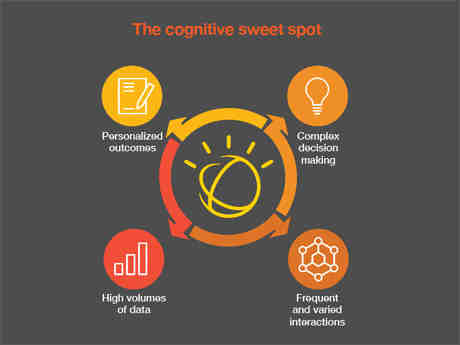Cognitive Technology to Impact Key Human Resource Functions: IBM Study

Cognitive technology has far reaching implications in Human Resources – from hiring through onboarding to HR operations, employee engagement and performance.
According to an IBM (NYSE: IBM) report released Wednesday, HR executives are already recognizing the impact of cognitive and there are several key areas where cognitive capabilities can be leveraged in the new HR era.
Recently, IBM Institute for Business Value (IBV) and Smarter Workforce Institute (SWI) released a report into Cognitive HR, “Extending expertise: How cognitive computing is transforming HR and the employee experience.” The report highlights how cognitive technologies are likely to impact HR functions.
This impact is already being recognized, as more than 65 percent of CEOs surveyed believe that cognitive will drive significant value in HR, while more than 50 percent of HR executives believe that cognitive computing will affect key roles in organizations.
“We’re seeing cognitive emerge to improve decision making and expand the HR function and complement existing processes,” said Susan Steele, executive partner, Global Talent and Engagement, IBM Global Business Services.
“Cognitive technology is being rapidly developed, deployed and replicated in the HR environment across industries to assist in transforming and enhancing the end-to-end employee experience.”
The IBV-SWI report found that within the HR field, there are three areas poised to take full advantage of cognitive computing’s unique capabilities, including talent acquisition and onboarding, talent development and HR operations.
Additionally, employees are ready to embrace cognitive in many daily activities, but there are key areas where cognitive solutions will have the most impact. These areas include:
- Information-rich and highly complex decisions, requiring a wide variety of inputs from different data sources
- Frequent and varied interactions by users, where large volumes of requests must be interpreted and addressed
- High volumes of unstructured data are involved – such as free-form text, images and auditory cues
- Customized and personalized output to address the individual needs of a global and diverse workforce
The IBM IBV SWI “Extending expertise: How cognitive computing is transforming HR and the employee experience” study is available for download.
Photo courtesy: IBM













